Stories abound about where the ever-popular biryani originated.
Described as India’s “quintessential celebratory dish,” various accounts from historians differ as to where this ever so popular dish came from.
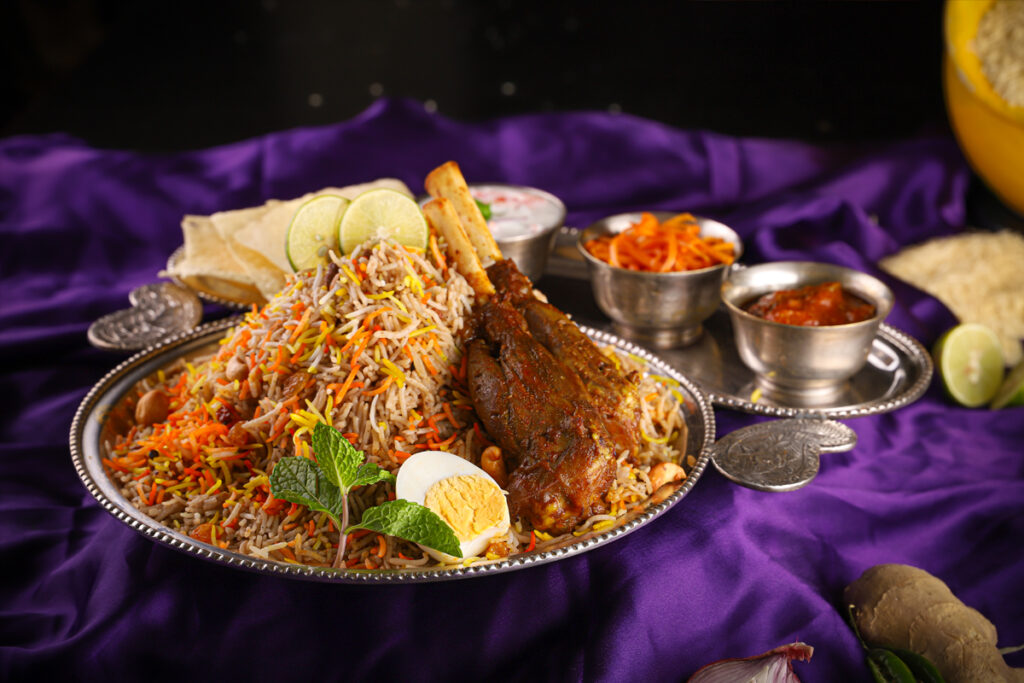
Historian Lizzie Collingham has noted that the modern biryani developed in the royal kitchens of the Mughal Empire, an early modern Islamic empire in South Asia that reigned from 1526 to 1857.
Indian restaurateur Kris Dhillon believes the dish originated in Persia, and was brought to India by the Mughals.
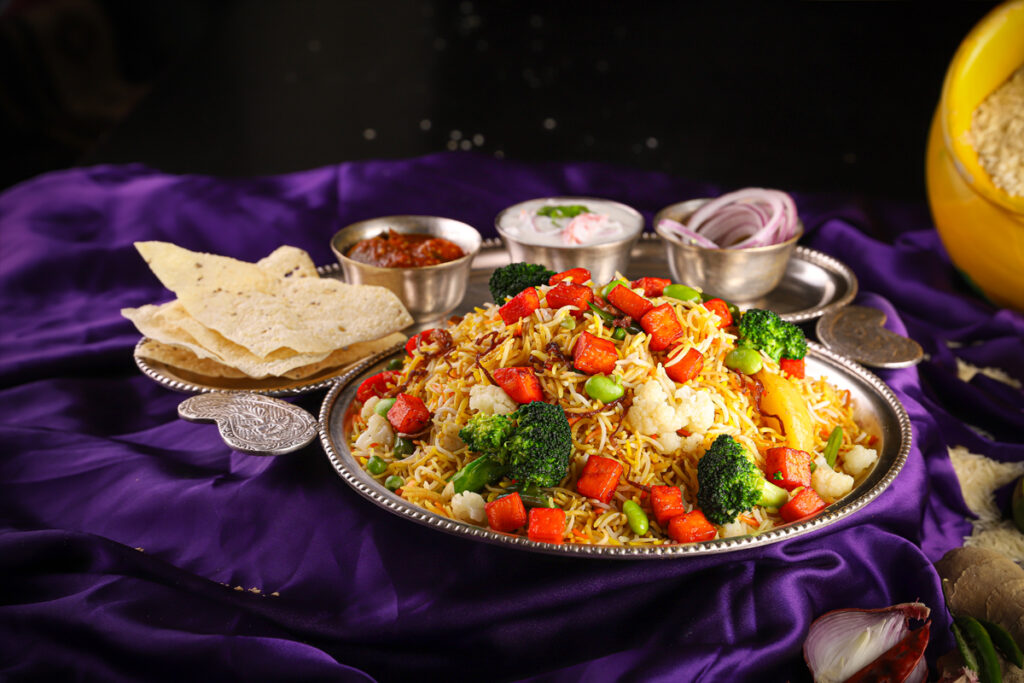
According to a BBC report, there actually is little doubt that biryani originated in Iran, citing the name which can be traced to the original Persian “birinj biriyan” – which literally means fried rice.
Biryani is a mixed rice dish made with spices and some types of meat – mutton, beef, chicken, fish, prawns and goat. And so the different variations.
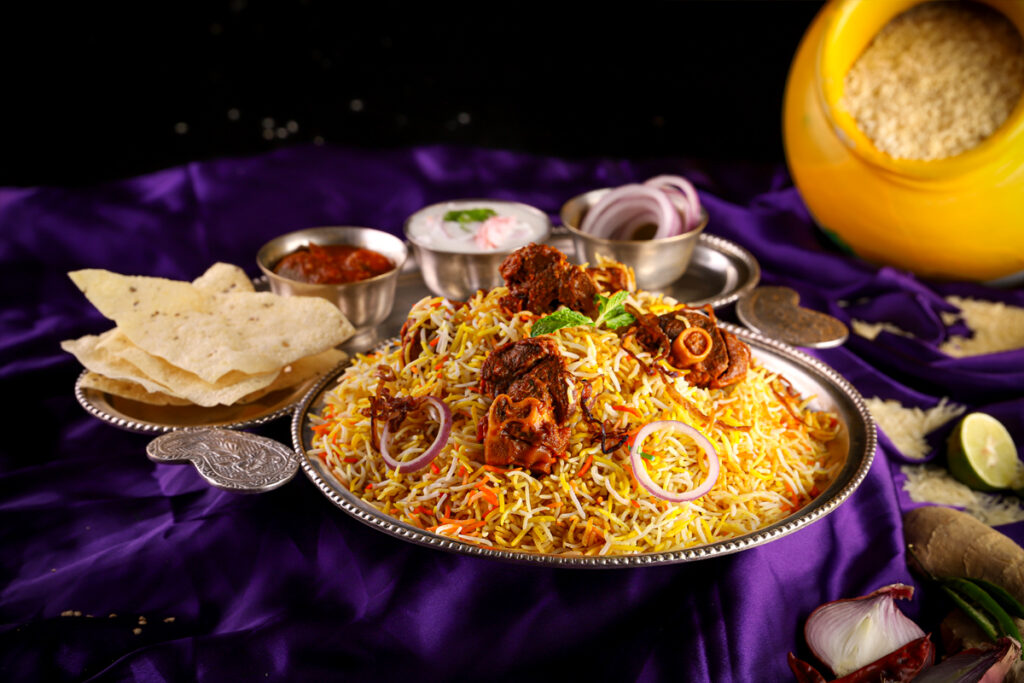
Biryani can be as staple as an ordinary workingman’s lunch or celebratory, as mentioned, and presented during occasions like Eids.
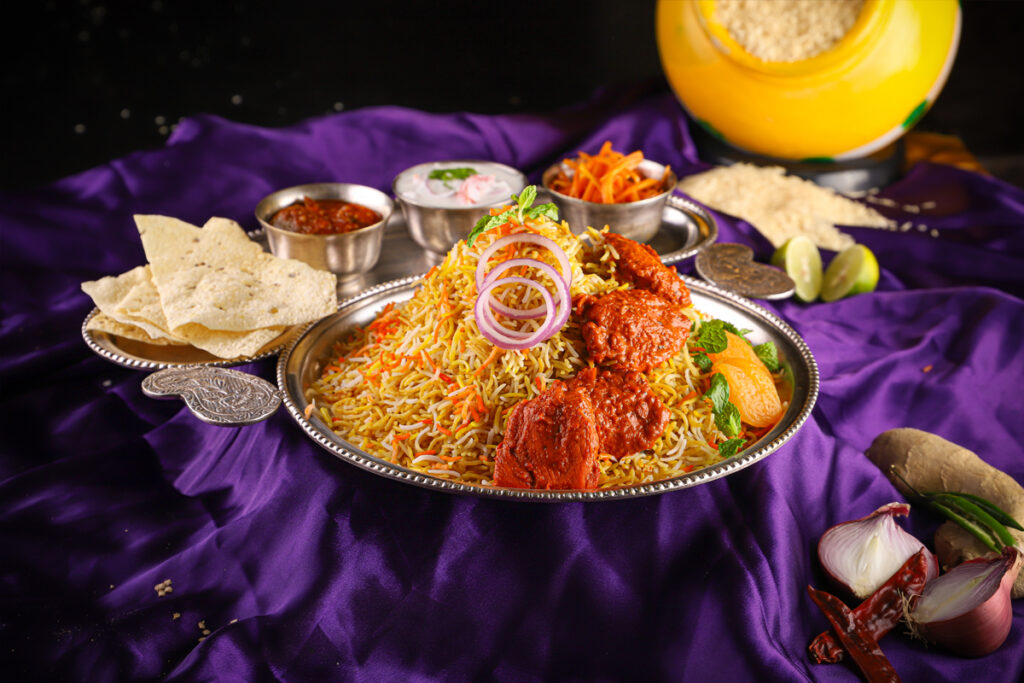
This Eid Al Adha, restaurants across the UAE will be rolling out biryanis on offer. Among these is the newly opened fine dining Indian restaurant, Laung by Peppermill at Nation Towers on Corniche Abu Dhabi.
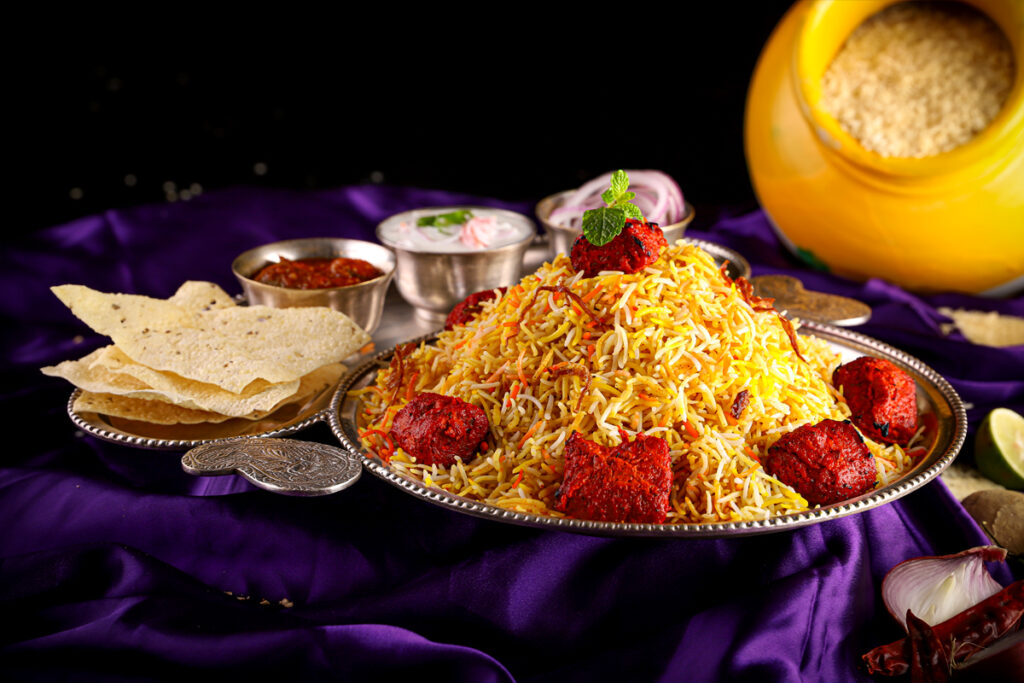
The special menu consists of six varieties of flavourful biryanis perfect to share with family and friends. Available from 8 July to 18 July, the menu highlights include Raan Biryani, Rampur ki Biryani, Lahori Biryani,Nizami Biryani, Soya Chaap Biryani and Veg Biryani.

